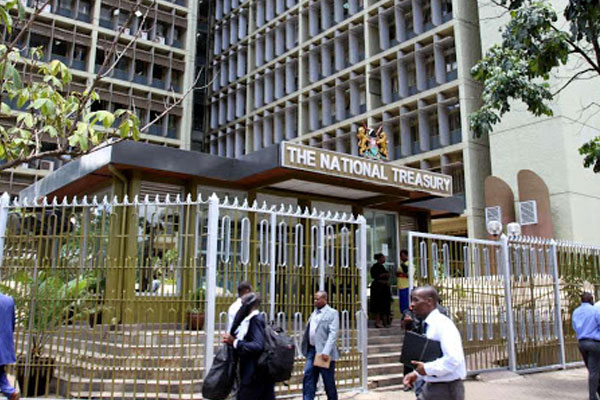Agency downgrades Kenya’s credit rating

Steve Umidha @UmidhaSteve
Credit rating agency Fitch Ratings has revised the outlook on Kenya’s long-term foreign and local-currency default rating to “Negative” from “Stable”, citing the country’s rising risks to meet its borrowing requirements and debt payments.
The rating agency, in its latest review also affirmed an Issuer Default Rating (IDR) of B+ and further downgrading the country ceiling to ‘B+’ from ‘BB-’.
It attributed the relegation of Kenya’s ratings to the lack of a clear path towards government debt stabilisation as well as the projected impact of the Covid-19 shock on public finances and growth.
The pandemic has added further pressure on public finances and Fitch expects revenues in 2020 to contract in nominal terms for the first time since 2009 due to the economic contraction.
So far pecuniary measures by the government in its stimulus package to alleviate the impact on the economy have remained modest –but that could change if the impacts of the pandemic lasts a little longer and the country is put on a further partial lockdown.
The negative outlook also reflects the prospect of a sustained upside pressure on government debt and additional downside risks associated with the global shock.
“The revision of the outlook on Kenya’s IDRs reflects our view that the coronavirus shock will drive a sharp economic slowdown and deterioration in the budget deficit and government debt to gross domestic product (GDP) ratio in 2020, against a background of a weak track record of fiscal consolidation,” the agency said.
Even before its downgrade, Kenya’s public finances were already a rating weakness and the coronavirus shock has deepened the situation as it will now delay any significant narrowing of the fiscal deficit until at least the fiscal year ending June 2022.
National Treasury raised domestic borrowing for the just-ended financial year by Sh84.63 billion at the beginning of the year, with Treasury Secretary Ukur Yatani increasing the cash the government was targeting to borrow from domestic investors by 19.5 per cent to nearly Sh514.03 billion for the year to June.
National budget
The adjustment was largely linked to the additional Sh55.23 billion expenditure for development contained in the national budget read two weeks ago.
It also comes as Kenya Revenue Authority (KRA) struggles to meet tax targets in a slow economy – now reeling from the fierce pandemicand runaway looting of public resources, forcing Treasury to reduce the taxman’s target by Sh100 billion to Sh1.7 trillion. This target will likely not be met by the end of the month.
Widening of the general government deficit, according to Fitch, will reach 8.6 per cent of GDP, reflecting an additional hit to revenue from the Covid-19 shock itself, recent tax relief measures adopted by the government that cost an estimated 0.5 per cent of GDP in foregone revenue, and Covid-19 related spending costing an additional 0.4 per cent of GDP.
While the rating agency has welcomed some of the budget’s proposals which include expenditure cuts to offset lower revenue collection and targets a fiscal deficit of 7.5 percent of GDP, it has termed those moves as “too ambitious and will not have an immediate impact.”
Fitch further warns that failure to stabilise government debt to the country’s GDP poses high risk to the country’s negative rating – and instead the agency has recommended measures like a significant reduction in net external indebtedness, through higher Foreign Direct Investment (FDI) or a narrowing of the current account deficit by the Kenyan government.








